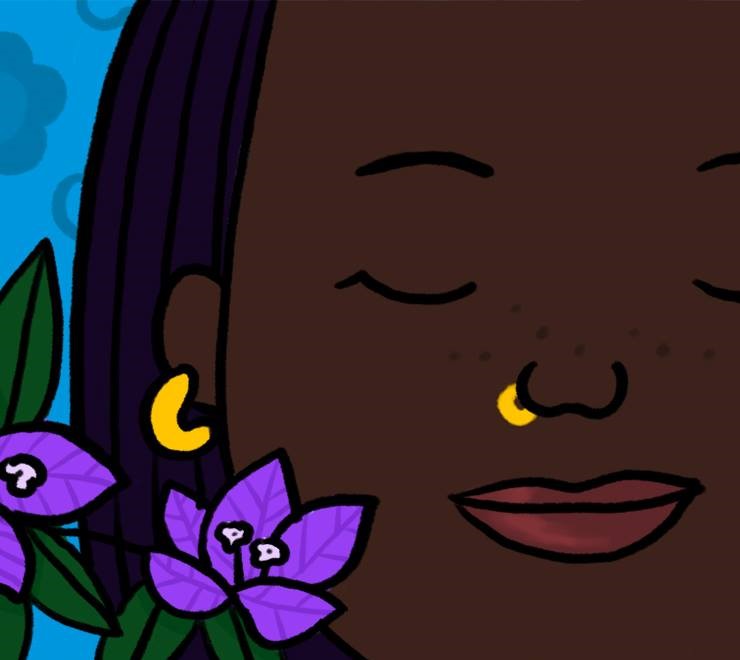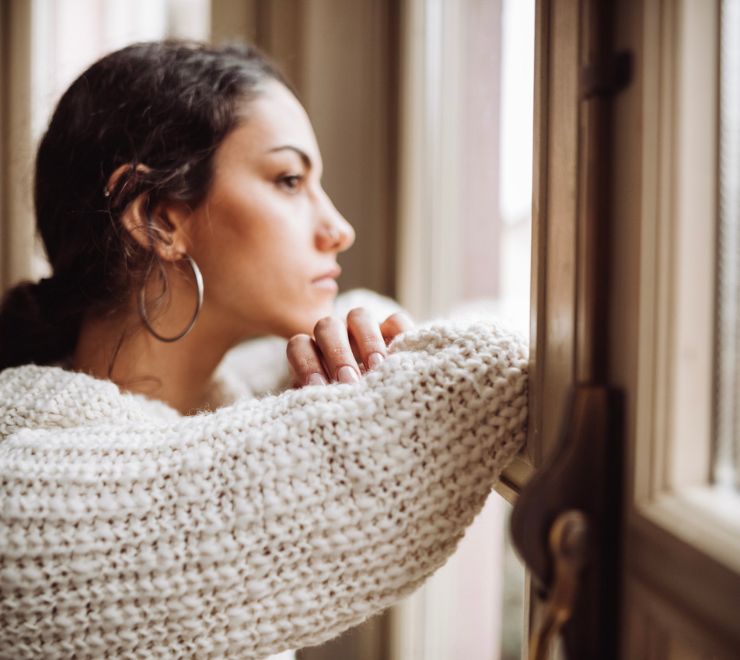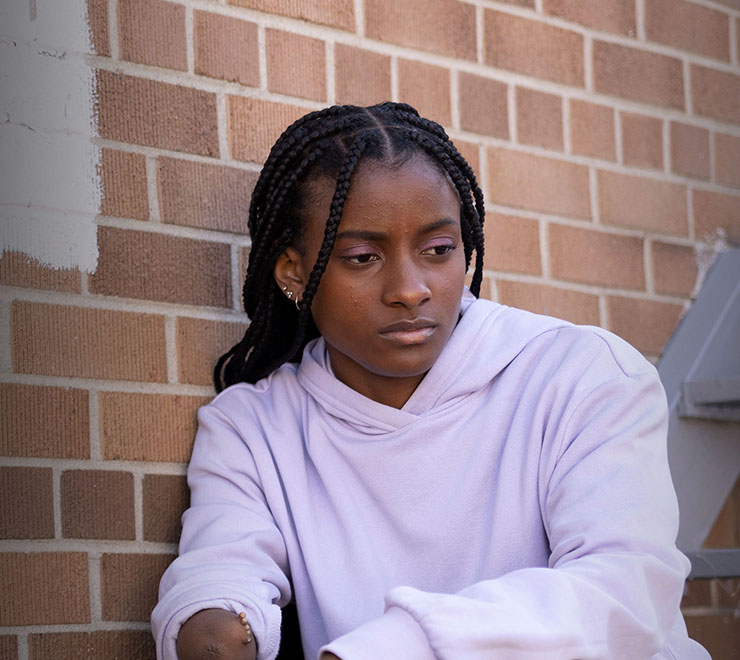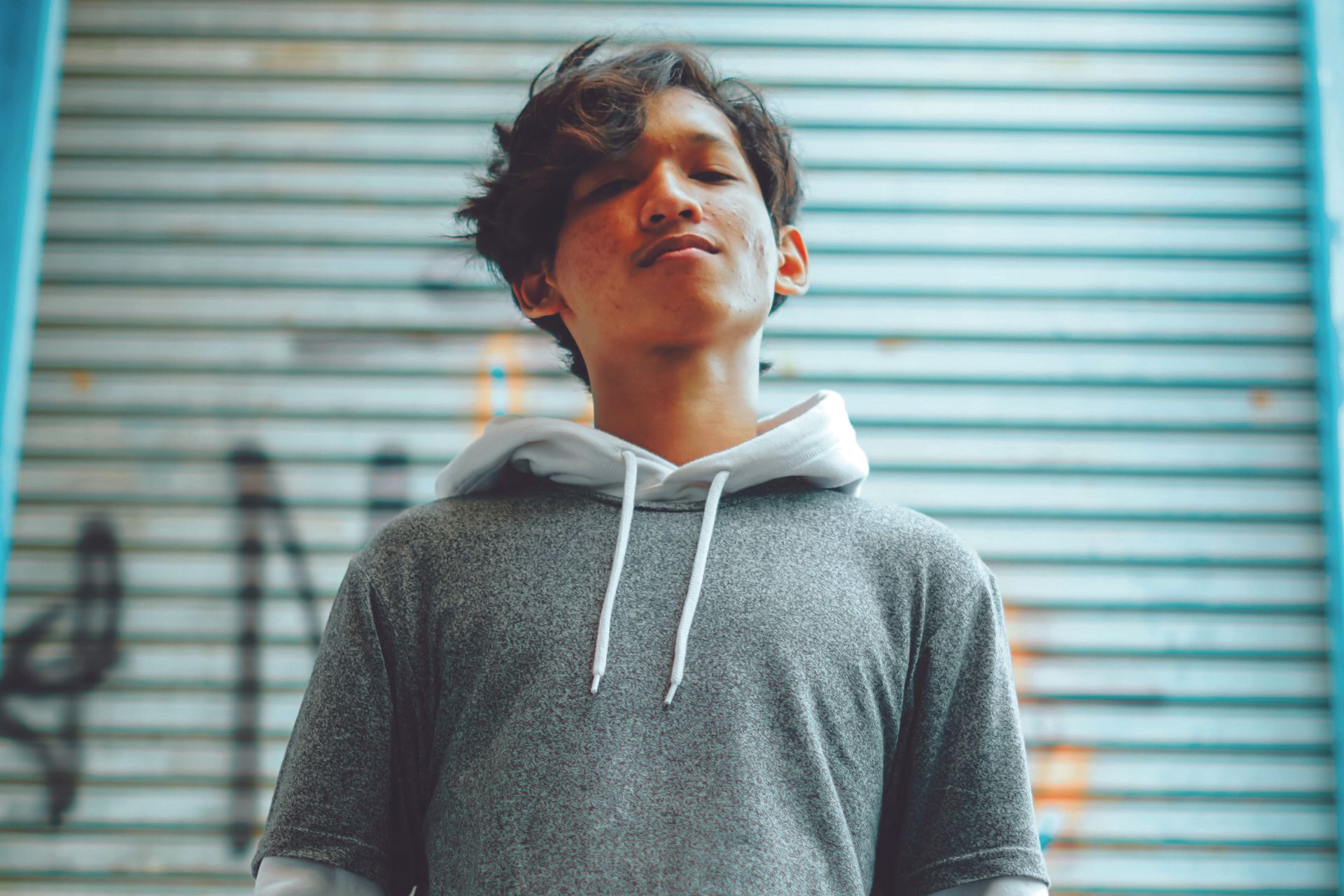Desiree Mckenzie (she/her) is a spoken word poet and teaching artist with a passion for storytelling. Kids Help Phone had the chance to connect with Desiree about two of their poems, “Grey” and “Be Okay.” These poems explore cultural stigma and mental health and highlight the power of art in sharing your story. Here, you can read our interview with Desiree and check out two videos of Desiree performing these poems.
Kids Help Phone knows that conversations about stigma, trauma and discrimination can vary in provinces and territories. We think it’s important to share real life stories that reflect experiences across Canada. We’ve encouraged the artist and author of this page to share their voice authentically and use language that makes the most sense for them. We also want to let you know the films and responses mention trauma, grief, substance use and contain phrases that may be upsetting. You can use our e-mental health services if you need support at any time.
What role do poetry and art have in supporting your mental, emotional, physical and spiritual well-being?
Poetry plays a huge role in my health in general. It’s an outlet that helps me process things I’ve experienced and am going through. There’s something really beautiful about writing something down and literally looking at it in front of you. It helps me fully acknowledge my feelings and everything going on in my head. There’s mindfulness to it which is nice, especially in a spiritual sense.
I’ve also always felt like I had trouble explaining myself. I feel like writing helps me find ways to process what I want to say and make it sound pretty with metaphors and similes. After I’ve written, I always feel really empowered and proud because I’ve expressed myself and in a way that others will understand. And hopefully that will help those who are experiencing similar things.
Video 1: Grey
My family,
Came here for a better life,
Came here from skies that smile back,
A sandy beach that tickles your feet.
Left their home to come to this life.
Canada.
Where 1/4 of our year is nested under grey skies.
Where the sun is drawn on more than the corner of the page,
They’ve learned to accept grey in the sky, and a sun not fully coloured in.
Everyone says my family is the friendliest on the street.
That we radiate West Indian hospitality.
So why frown when you have all that smile to serve?
All that brave face to show?
But when our brave faces broke,
We just get told,
What do you have to cry for, they can give us something to.
We are too blessed to be stressed like this,
“Fix your face,”
Like I wouldn’t have fixed it myself if I could.
Cause the clinical term for depression in my family, for people like me, for my community,
Is ‘complaining.’
Anxiety means you’re being paranoid.
Pain just means you need to pray harder.
Mental health is how elastic you can make your smile,
Stigma isn’t even a word in their dictionary.
So no matter the struggle, as long as it doesn’t kill you it makes you stronger,
So we have so many scars, but what does it mean if it’s healed over and still hurts on the inside?
So for people like us,
Who come from islands like us
We know so little of belonging,
Yet still,
We are the friendliest people on the street.
For anyone whose families came here for a better life,
When they tell us to not complain,
And that they can give us something to really cry about…
Remember why they came here…
Remember why they searched for a better life.
Remember that the search doesn’t have to stop with them.
I want more than just to learning to survive.
I want the sun to be drawn on more than the corner of the page.
Because I can accept grey in the sky,
But not on the inside.
Can you share a bit about what motivated or inspired you to write “Grey”?
A huge part of what made me want to write this poem is the intergenerational trauma and cycles that children of immigrants and racialized communities tend to face. This can include domestic violence or substance use among many other things that can impact our mental health.
From my own experiences, growing up in a family from the Caribbean, I’ve always known the resilience, bravery and strength of my family, but never the full effects of the things they’ve experienced. There was always a stigma around talking about that. It was apparent in how we addressed our problems (or the lack of how we would address them), so I wanted to write something that touches on the realities behind that experience, and what people don’t see beyond “the friendliest people on the street.”
Do you feel like you want to have a confidential conversation with a real person right now? Check out our e-mental health services for support. Black and Afro-diasporic youth can text RISE to 686868.

What do you wish more people knew about the experience of being a newcomer to Canada?
I was born in Canada, but what I wish people knew about my family’s experience is that even though they are friendly, hardworking people who seem OK on the outside, they still need support from those around them and resources for mental health. They experience systemic racism and face barriers. Though they may not talk about it, it takes a toll on them. They’re more than friendly neighbours and have many stories to tell.
“Grey” mentions some of the beliefs that stem from cultural stigma (“Anxiety means you’re being paranoid” and “Pain just means you need to pray harder”). Why do you think it’s so important to discuss this? What can people do to break down these barriers?

I think the more we address things like anxiety, depression and PTSD (to name a few), those with the same struggles will feel comfortable sharing their stories and experiences. It’s about breaking the cycle of silence and turning it into something we can have an open conversation about. This also helps address the fact that holding things in and feeling shame about our mental health is not always helpful. It’s OK to not be OK, but I do think we all deserve more and to speak on it freely and without shame when we’re not feeling OK.
Video 2: Be Okay
When they say,
“You’re not alone,”
We feel like we’re the exception.
When they tell us
“It’s OK to not be OK,”
We take it out of context, and stay “not OK”
This is how it goes.
With the colour on my skin,
And the colours the world paints me in,
Got me trapped inside my cultural ties
It’s not that we run away from our problems.
We’ve just trained to run beside it.
I’ve been coached through the struggle olympics,
Of how much worse it could be, it could get,
And we should be thankful everyday we haven’t run into that yet ,
But this running is starting to feel more like sinking…
I want to slow down.
Feel every hand that is offered to me,
Make that call,
And feel something more than urgency,
Feel more than counting the minutes and blessings of my day,
Wishing for better ones like I don’t have a say.
Yes i am blessed,
But there are so many more out there for me,
Who am I block them?
So, when they say
“We’re not alone,”
“And it’s OK to not be OK”
I’ll take that for exactly what it means,
Not for how my culture, or the way the world tries to invalidate me.
Because I can feel everything I feel,
And live in the in-betweens of all these feelings,
And everything that hurts,
And still hope for more.
Do you have any tips for someone interested in trying writing or poetry as a way of sharing their story?
Write everything down! No matter what. When I started, if I didn’t like what I was writing or an idea wasn’t coming to me, I would give up. But it’s so important to get everything in your head onto the page. Doing that will help in creating space and get more ideas to come. It’s letting yourself feel exactly how you are at the time. You can always go back and edit. Honour the way you feel and what comes to you!
Kids Help Phone would like to thank Desiree for sharing their powerful story and poems with young people across Canada! Head here to get inspired by other youth who’ve shared their art and experiences.
Everyone reacts to art and poetry in unique ways. If this page has brought up strong emotions for you, Kids Help Phone’s e-mental health services are available 24/7 to support you.













